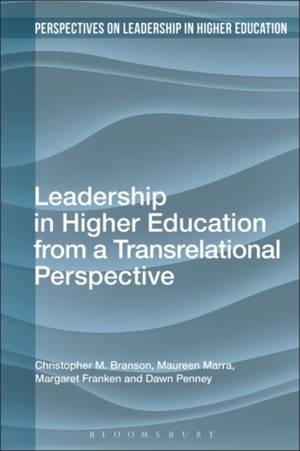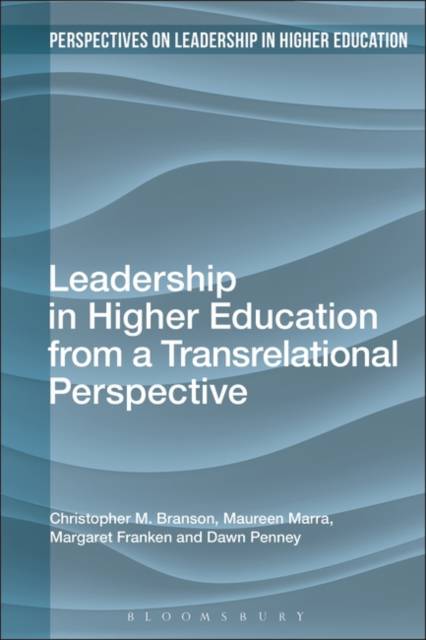
- Afhalen na 1 uur in een winkel met voorraad
- Gratis thuislevering in België vanaf € 30
- Ruim aanbod met 7 miljoen producten
- Afhalen na 1 uur in een winkel met voorraad
- Gratis thuislevering in België vanaf € 30
- Ruim aanbod met 7 miljoen producten
Leadership in Higher Education from a Transrelational Perspective
Christopher M Branson, Maureen Marra, Margaret Franken, Dawn PenneyOmschrijving
There is an abundance of research saying that not only is leadership in higher education ineffective but also that it actually undermines the essential work that should be happening in universities. Christopher M. Branson, Maureen Marra, Margaret Franken and Dawn Penney provide a new insight into leadership that has proven to be far more effective for all involved - the transrelational approach to leadership. This new way of leading places an emphasis on the importance of the relationships that the leader develops with each and every person they are leading. However, in order to apply this new way of leading, higher education institutions must change some of the key ways they work. This book provides direction in how this can happen, what benefits would result, and offers a view on what the future for higher education might be if such changes to leadership are not made.
Leadership in Higher Education from a Transrelational Perspective both critiques the likely implications of adopting this transrelational form of leadership into a higher educational institution and discusses the implications of not doing so. Although a transrelational approach to leadership might seem daunting for higher education institutions to adopt, is there any other choice? The authors argue that it is inconceivable for institutions founded upon promoting human development as a consequence of research to ignore such research that not only questions the suitability of current leadership practices but also offers a more effective alternative.Specificaties
Betrokkenen
- Auteur(s):
- Uitgeverij:
Inhoud
- Aantal bladzijden:
- 224
- Taal:
- Engels
- Reeks:
Eigenschappen
- Productcode (EAN):
- 9781350135109
- Verschijningsdatum:
- 31/10/2019
- Uitvoering:
- Paperback
- Formaat:
- Trade paperback (VS)
- Afmetingen:
- 156 mm x 234 mm
- Gewicht:
- 317 g

Alleen bij Standaard Boekhandel
Beoordelingen
We publiceren alleen reviews die voldoen aan de voorwaarden voor reviews. Bekijk onze voorwaarden voor reviews.







